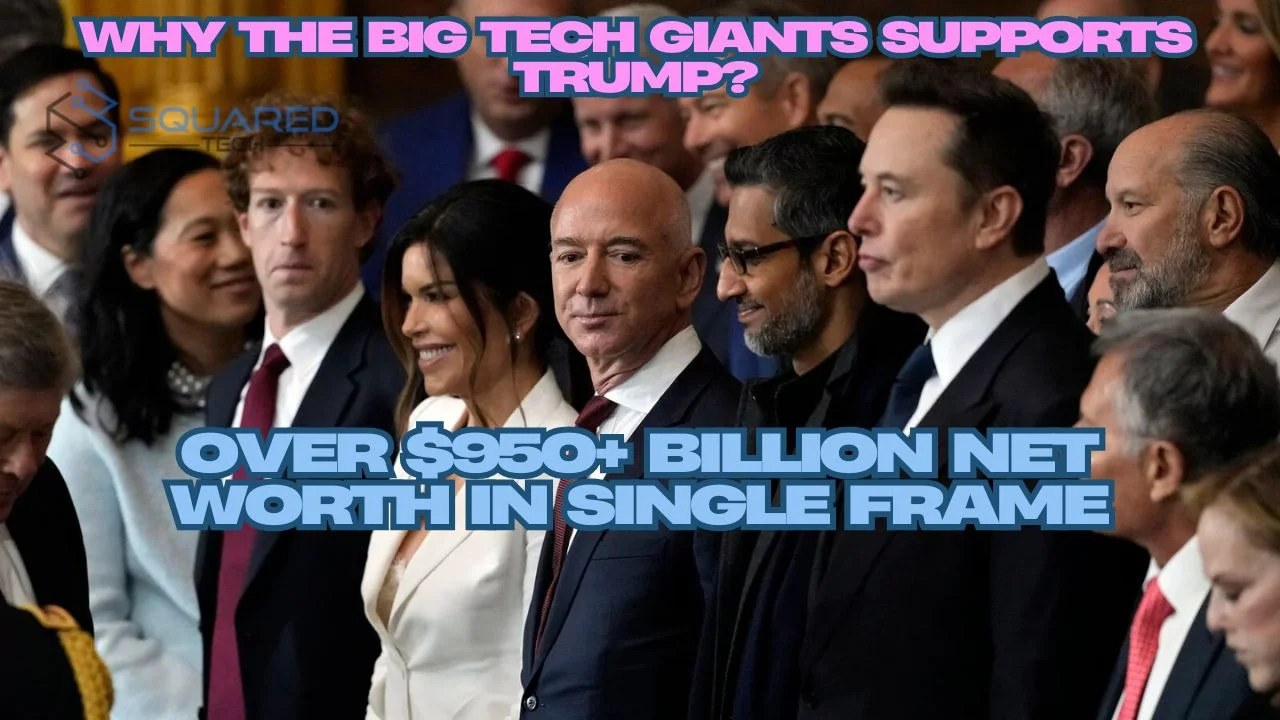The Article Tells The Story of:
- Tech Giants and billionaires pump millions into Trump’s inauguration for political favors.
- Crypto industry seeks deregulation, naming a “crypto czar” to shape policies.
- Trump leverages antitrust cases as tools to control tech companies.
- Billionaires push for tax cuts, avoiding scrutiny over alleged tax evasion.
The Era of Tech and Political Influence
Donald Trump’s return to power is marked by an unprecedented influx of cash from billionaires and tech giants. Companies like Amazon, Google, Meta, and OpenAI donated millions to his inauguration. Elon Musk, Jeff Bezos, and Mark Zuckerberg, among others, secured VIP access to Trump’s administration, aiming to shape policies favorable to their businesses. Reports suggest Musk even secured office space near the White House. The influence of tech giants in politics is more profound than ever.
This financial backing highlights the growing corruption in politics. Trump’s statement, “In this term, everybody wants to be my friend,” reveals how corporations now align themselves with power to secure their interests.
Check Out Our Article of Trump’s $TRUMP Coin Soars to $13 Billion in Hours: What’s Next? Published on January 19, 2025 SquaredTech
As tech giants continue to gain influence, the implications for democracy and regulation are significant.
Tech Industry’s Agenda
This growing influence of tech giants requires scrutiny as regulations evolve to keep pace.
Major tech companies face lawsuits and regulatory scrutiny. Apple battles antitrust cases, while Meta faces Federal Trade Commission actions threatening to separate Instagram and WhatsApp. Instead of improving products for users, executives aim to sway policies that protect their dominance. Trump, uninterested in traditional antitrust enforcement, uses these cases to enforce loyalty among companies.
Mark Zuckerberg, disillusioned with Facebook, has funneled billions into new ventures like the Metaverse and augmented reality glasses. These initiatives heavily rely on Trump’s AI and tariff policies, aligning Zuckerberg’s goals with Trump’s administration.
With the backing of tech giants, the crypto industry is pushing for deregulation that could redefine financial landscapes.
Crypto Industry’s Big Gamble
The crypto industry has emerged as one of Trump’s biggest supporters. With donations reaching tens of millions, crypto leaders aim to influence the Securities and Exchange Commission and achieve minimal regulatory oversight. Trump has named David Sacks, a venture capitalist, as “crypto czar,” signaling his intent to support the industry.
These tax strategies employed by billionaires and tech giants only reinforce their dominance over political decisions.
The collaboration between politicians and tech giants suggests a dangerous precedent for future governance.
An executive order labeling crypto as a “national priority” is under discussion. This would promote government collaboration with the crypto sector, despite concerns over its role in crime and fraud. Deregulation could lead to more scams like FTX while integrating crypto into government projects regardless of its utility.
Tax Cuts for Billionaires
Billionaires’ contributions are also tied to tax policies. Trump’s nominee for Treasury Secretary, Scott Bessent, prioritizes maintaining tax cuts for the ultra-wealthy. Accusations of tax evasion against Bessent highlight the billionaire class’s reluctance to pay taxes.
These financial maneuvers reflect a broader agenda where billionaires and tech moguls use their wealth to avoid accountability, reduce taxes, and gain political influence.
Conclusion
The intersection of tech giants, wealth, and politics in Trump’s administration signals a troubling era of influence-buying. As billionaires and corporations prioritize profits over public welfare, questions about accountability and fairness loom large. This dynamic poses challenges for democracy, with power concentrated in the hands of a few, especially tech giants.
Stay Updated: Tech News –Editors Pick


